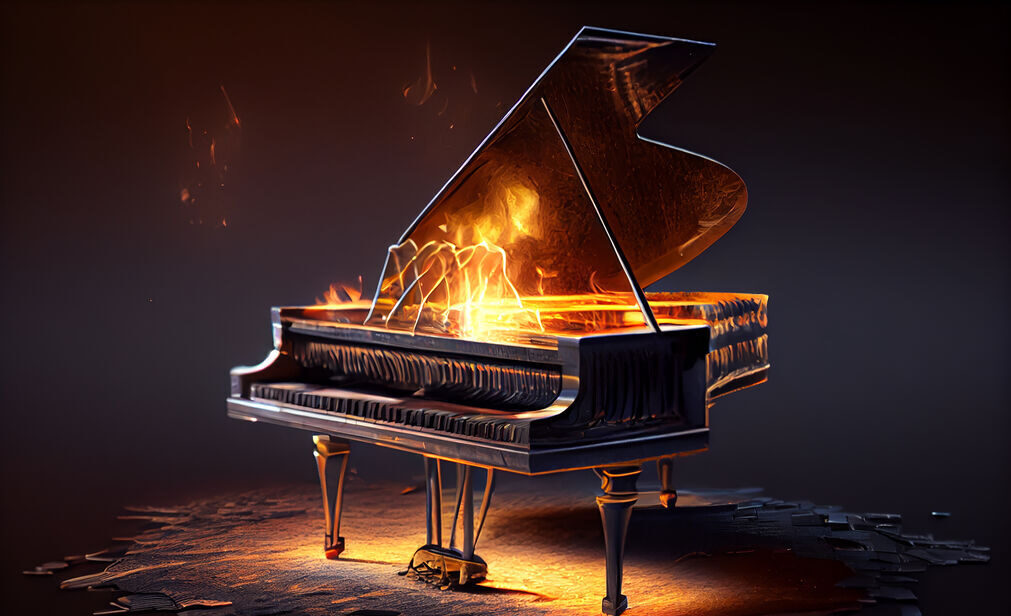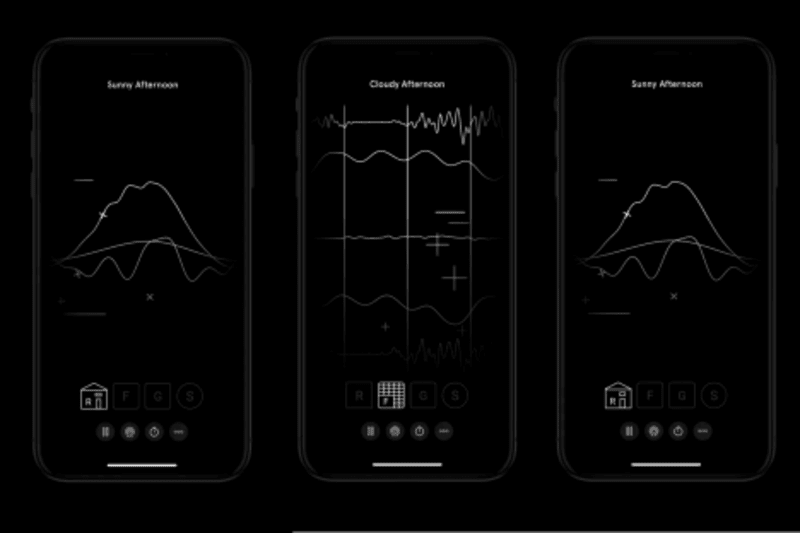
In the ever-evolving pop culture landscape, a revolutionary force is reshaping how we create, consume, and experience entertainment: Generative AI (GenAI). From generating music and art to crafting compelling narratives, GenAI has swiftly become a driving force behind the scenes, ushering in a new era of innovation and creativity in the digital age.
Pop culture has always reflected society’s collective consciousness, a mirror that captures the spirit of each era. From music and movies to fashion and memes, it’s a dynamic tapestry that weaves together the threads of human creativity and expression. But what if we could democratize creativity, break down barriers, and grant individuals from all walks of life the tools to unleash their imagination? That’s where Generative AI comes in.
Music Creation with AI
One of the most exciting uses of GenAI is its ability to generate original music compositions. With complex algorithms and machine learning, GenAI can compose melodies, harmonies, and rhythms that sound like they were made by human musicians. The idea of using computers to create music has been around for decades. In 1957, the “Illiac Suite” by Lejaren Hiller and Leonard Isaacson became the first musical score generated with the help of a computer. This marked an early step in combining human creativity with computational power for music composition. Hiller and Isaacson programmed the ILLIAC I computer at the University of Illinois at Urbana-Champaign to generate compositional material for String Quartet No. 4. This pioneering work represented a significant step in the collaboration between human creativity and computational processes in music composition.
Lejaren Hiller – Illiac Suite for String Quartet
As years passed, there was a growth in machine learning. In the early 2000s, researchers were already applying these techniques to music generation. One notable example was David Cope’s “Experiments in Musical Intelligence” (EMI), a rule-based AI system that could compose music in the styles of great composers like Bach, Mozart, and Chopin. EMI could generate music that was structurally, harmonically, and emotionally resonant, offering us a glimpse into the creative minds of these composers.
Bach style chorale Emmy David Cope
Fast forward to the present day, where the power of deep learning and neural networks has elevated generative AI to new heights. This technology not only augments human creativity but also enables musicians to explore uncharted sonic territories.
Personalized Music Streaming
Since their inception, streaming platforms ingrained with AI have reshaped music consumption habits. With generative AI, personalized experiences in music consumption are poised to become even more immersive. Top streaming platforms leverage AI to personalize playlists and recommendations, offering users dynamic experiences tailored to their preferences. Moreover, live music experiences increasingly integrate digital elements, fostering deeper interactions between artists and fans.
A plethora of apps, such as Endel, Brain.fm, and Aimi, have harnessed this technology to enrich the music experience for users. These apps generate never-ending playlists that cater to specific moods or mindsets, ensuring that the sound of the music aligns with the user’s current mode, be it “deep work” or a quest for relaxation. By adapting to the user’s needs in real time, these AI-driven platforms create a personalized and immersive musical journey, transforming the way we engage with and enjoy music.

Generative AI holds the promise of deeply personalized user experiences in music. By leveraging AI, artists, labels, and distributors can create dynamic experiences that provide context to music and foster interactive engagement with audiences. Personalized experiences not only enhance user satisfaction but also enable brands to gain a larger share of the streaming market. Through curated content and innovative offerings, artists can build communities and maintain meaningful connections with their fans.
AI-Generated Music and Covers
Generative AI and music are about to change the game. We’re not just talking about playlists or song suggestions based on your listening habits. We’re talking about using advanced algorithms and computer programs to analyze existing songs and create entirely new musical pieces. This technology is a goldmine for film and TV soundtracks, video game scores, and background music for digital media.
The beauty of AI-generated music is that it can cover a wide range of styles and genres – from classical to jazz, rock to pop, and hip-hop. And that’s not all. AI can create entirely original compositions, often more complex and sophisticated than those created by human composers. Platforms like AIVA and Boomy allow users to generate their AI-composed music. AIVA Music, launched in 2016, lets you create custom music compositions using AI. It’s as simple as signing up, choosing a project type, and adjusting the AI settings. AIVA will then generate a unique piece that you can further customize and export for your projects.
Midnight Runner – AI Composed Phonk Track by AIVA
Another field where generative AI has affected the industry is AI-generated covers. Just like the early days of hip-hop, where sampling revolutionized music, AI-generated covers have the potential to redefine the way we create and consume content. The following video is of Drake singing a Bollywood song.
Credits: Drake, Anshuman Sharma
AI-generated cover songs are created by training machine learning models, especially deep neural networks, on large datasets of existing songs. This allows the AI to analyze and learn complex musical patterns like melodies, harmonies, and rhythms across different genres.
The AI uses pattern recognition to generate new musical content by dissecting and replicating the intricate structures found in songs. This capability to recreate complex musical compositions is something that would take human musicians considerable time and effort.
These AI systems can not only create original music from scratch but also reinterpret and cover existing songs across various musical styles and genres.
However, the rise of AI music generation raises several regulatory challenges around copyright protection. There are questions about whether AI-generated music is eligible for copyrights and if AI covers of famous artists’ songs violate existing laws.
There are also concerns about artists’ rights to restrict the use of their AI-generated voice or likeness. Currently, there are inadequate regulations to address these issues as AI-generated content becomes more prevalent.
Artists may take legal action to prevent AI models from using their music data for training purposes. Developing proper regulatory frameworks to handle complex legal issues around AI-generated content involving artists’ clones or likenesses will likely be necessary.
Additionally, the adoption of generative AI is set to reshape job roles in the music industry, potentially reducing the need for intermediaries and streamlining artist teams. While middlemen serve an important role, their complex structures can hinder direct artist-audience connections.
AI is also changing how musicians collaborate, with the pandemic driving a shift towards remote recording using online collaboration tools. This cost-effective and environmentally-friendly model has become a preferred approach for many artists and labels.
As the music industry embraces AI, we can expect a renaissance marked by innovative experiences and more engagement opportunities for audiences. The lines between physical and digital realms will continue blurring, opening up new avenues for immersive music events in public spaces.
AI-driven personalized user experiences will become more common, boosting fan engagement and driving growth in the streaming market. With AI analytics and generative AI capabilities, artists and music companies can unlock new possibilities for connecting with audiences and building communities.
To Read more on How Generative AI Is Transforming the Music Industry checkout
1. The Future of Music: How Generative AI Is Transforming the Music Industry by Justin Moore and Anish Acharya
2. Generative AI In the Music Industry: Key Takeaways from Innovation Waves by Miquido
About the author:
Hrishikesh P is an Associate Machine Learning Engineer at FoundingMinds. Holding a BTech in Computer Science Engineering from Amrita Vishwa Vidyapeetham, Hrishikesh is deeply passionate about harnessing artificial intelligence to automate tasks and explore emerging technologies. Since joining our team, he has been pivotal in driving innovation and expanding the boundaries of machine learning. With an innate curiosity and dedication to staying at the forefront of technological advancements, Hrishikesh is poised to make a significant impact in the tech industry. We are proud to have him as an integral part of our team as we continue to push the boundaries of what’s possible in AI.

